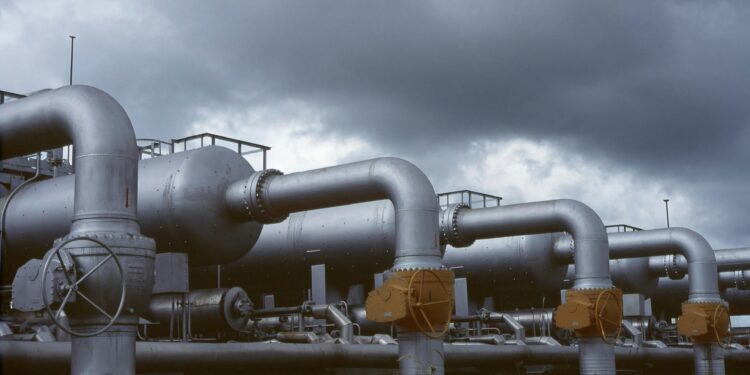Russia has announced the suspension of gas deliveries to Austria starting Saturday, marking a pivotal moment in the erosion of Moscow’s role as a dominant energy supplier to Europe. The move underscores the dwindling flow of Russian gas to the continent, now primarily serving Hungary and Slovakia, a sharp decline from meeting 40% of the EU’s gas needs before the 2022 invasion of Ukraine.
End of a Historic Relationship
Austria was the first Western European nation to buy Russian gas, signing a contract with the USSR in 1968, shortly before the Soviet invasion of Czechoslovakia. This long-standing relationship will come to an end following a contractual dispute between Russia’s Gazprom and Austria’s energy company, OMV.
OMV announced via the Central European Gas Hub platform that Gazprom had notified it of the suspension. Gazprom declined to comment on the development.
Austria’s Preparedness for the Cut-Off
Austria remains one of the few European nations still significantly dependent on Russian gas. However, OMV stated that it has prepared for this eventuality and can meet its energy needs by importing gas from Germany, Italy, and the Netherlands.

Despite these measures, analysts warn that Austria’s energy crisis will worsen, further straining its recession-hit economy. “Austria’s economy is already struggling, and this will only exacerbate the challenges,” said analysts at Eurointelligence.
Wider Implications for Europe
The halt to Austria comes amidst a broader reduction in Russian gas exports to Europe. The flow of gas to Germany, once Russia’s largest customer, ended after the Nord Stream pipelines were sabotaged in 2022.
While Hungary now relies on the TurkStream pipeline through the Black Sea, Slovakia continues to receive Russian gas via Ukraine. However, Ukraine has indicated it will not extend its transit agreement with Russia beyond 2025, potentially cutting off gas supplies to Austria and Slovakia altogether.
EU’s Shift to Alternative Energy
EU Energy Commissioner Kadri Simson emphasized that alternative sources are available to compensate for the loss of Russian gas. Speaking at a UN climate conference, Simson said, “We have ensured that all EU countries receiving gas via Ukraine have access to other supply sources. There is no need for the continuation of Russian gas transiting through Ukraine.”
Putin and Scholz Discuss Energy
In a separate development, Russian President Vladimir Putin and German Chancellor Olaf Scholz held their first phone call since December 2022. Putin indicated Russia’s willingness to explore energy deals if Berlin showed interest, highlighting Moscow’s ongoing effort to maintain some level of energy influence in Europe.
Bottom Line
The suspension of Russian gas to Austria signals a significant shift in Europe’s energy landscape. While Austria and its neighbors scramble to adapt, the EU’s reliance on alternative energy sources grows, further reducing Moscow’s leverage over the continent. However, the economic and energy challenges for nations like Austria highlight the ongoing impact of this historic transition.

















